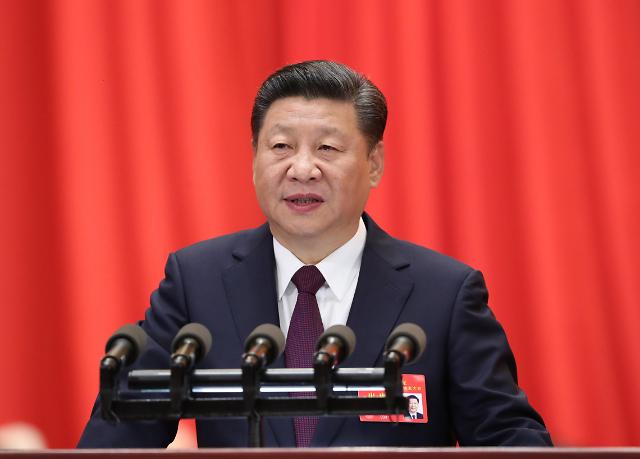
[Xinhua News Agency]
(This article was contributed by Kim Bong-hyun who served as South Korea's former ambassador to Australia.)
At China's 19th communist party congress, President Xi envisioned socialism with Chinese characteristics as his governing ideology, to use it as a principle of foreign policy and domestic rule.
Xi presented the dream of making China prosperous and powerful again. He wanted to explain to the Chinese people that he was forced to maximize his power to realize this. However, there are suspicions that he was trying to prolong his power beyond his ten-year rule.
Anyone can have a dream. In 1963, American human rights activist Martin Luther King presented his dream through his speech "I have a dream". His dream was neither American first, nor black supremacy. His dream was to realize the universal justice of mankind. Human beings are born with equal dignity, regardless of their skin color, so they must be given equal rights.
His dreams came true and became the foundation of the American Dream. It also became the starting point of the global human rights movement. No one can deny the universal value of human dignity. This is a value that applies to anyone, not just Americans. Because of this dream, King is remembered as a great leader.
Unlike King's dream, dreams that are not based on universal values can be dangerous. There are many cases in which narrow-minded and sectarian dreams have brought pain to humanity.
What is the difference between Xi's dream of reviving China, Japan's Greater East Asia Co-Prosperity Sphere and the superiority of the Aryan race? It differs from the universal value in that it contains the sectarian nature of the Chinese people.
China's revival will benefit China itself, but it is unclear what kind of benefits it can bring to neighboring countries and the world. The dream of maintaining the world's strongest military power in 2050, with China's revival, is not only a threat to the United States, but it can also be a threat to South Korea and Japan. We have had to worry about it because of China's retaliation over the deployment of an American missile shield called THAAD.
It is not only because of physical strength that catapulted the United States to a leading position in the world. The U.S. realized the universal value of liberal democracy and market economy and contributed to global development through it. Also, its open market system contributed to economic development in many countries.
The fall of the former Soviet Union was attributed to the communist party's inherent contradictions, but there is a common belief that Secretary-General Brezhnev neglected reform. If he had transformed the communist system into a politically and economically flexible regime, the Soviet Union would not have collapsed in vain.
Xi's historical task is to turn China's political system into a more flexible liberal democracy, and he should dream of it. China's democratization aiming for universal values can make its policies more transparent and magnanimous.
As neighboring countries and the world can nurse a hope of achieving common prosperity through its democratization, China should send a message that it can contribute to the world through its democratization if it wants to win true international respect.
Mao Zedong transformed China into a new state system, and Deng Xiaoping introduced a market economy. Now, Xi has a historical mission to transform China into a new political system. However, his sectarian dream has put the world into a state of extreme vigilance. China should explain how Xi's dream is different from Japan's Greater East Asia Co-Prosperity Sphere.


![[COLUMN] Is it the end of dog farming?](https://image.ajunews.com/content/image/2023/12/06/20231206165042934346.jpeg)
![[COLUMN] Study-in-rural-village education project creates hometown for future generations](https://image.ajunews.com/content/image/2023/03/14/20230314171302400526.png)
![[COLUMN] The National Assembly, the birth rate and the way out of hell](https://image.ajunews.com/content/image/2023/02/17/20230217232456721696.jpg)